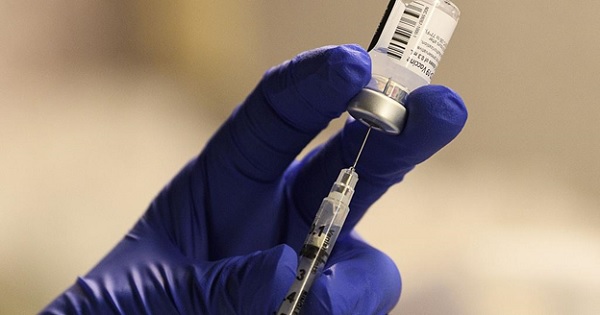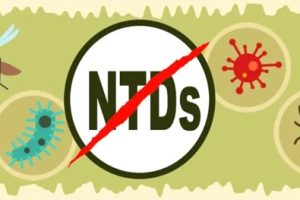
BY LEULSEGED WORKU
Africa is resource-rich continent; and its contribution to the world in terms of supplying rare and very important raw materials that are critical to social and economic development is greater. However, the benefit the continent gains from the global economy is very minimal and insignificant.
Several factors are good indicators of this. Underdeveloped infrastructures, poor industrial growth, and lack of commitment from government, budget constraints and others can be stated as good examples to this.
The Coronavirus pandemic that swept across the world has witnessed how Africa is left behind in overcoming the disease. While, developed nations have been rushing to vaccinate their citizens, Africa and other developing countries were totally crippled due to their limited capacity to produce the vaccines; and their over-reliance on foreign allies for the jabs. Ironically, the shares of the vaccines that have been delivered to Africa have been too low; and even reached belatedly; nearing to the end of their shelf life.
Ethiopia is a good example in this regard. As a country of more than one hundred million, it could not even have a chance to get three million jabs in the first round of COVID-19 vaccine donation.
Let alone the vaccine, it had even faced a challenge to access facial masks. This, as many people stated, is a wakeup call that signaled an important message for the country in particular and Africa in general to join hands; strive to develop their own vaccine and work aggressively on the health sector.
According to Zenabu Temssgen, Vaccinologist, the need to develop vaccines in Africa is not an option; but it is mandatory. Africans should successfully build their capacity and develop vaccines to curb their peoples’ health threats not only the existing one, Corona virus, but also other emerging infectious diseases.
Several factors have prevented the continent from producing its vaccines. Policy, limitation in skilled human power and institutional issues among others are still challenging the continent.
According to Zenabu, also Public Health Practitioner and Consultant, predicting the outbreak of a pandemic is important in the public health sector as well as among policy makers. Forecasting pandemics that may happen in the future is not being a pessimist. Rather, it is a wise move towards safeguarding the society from future threats and health related complications. “There are limitations; Resource, human power, budget and policy gaps are serious problems of Africa. Participating in research activities is too low in Africa.
It is at this moment the Corona virus pandemic outbreak and swept all over the world. This has created chaos all over the world; and has kept the global community in severe trauma. This is especially true in Africa where there was no preparation to combat such kind of pandemics.”
As to him, this coupled with other reasons make the pandemic serious and threatening for the continent. Two years have already elapsed since COVID-19 pandemic erupted. However, the situation in Africa is still the same.
Zenabu said Africa has a great share in the total population of the world. It covers about fifteen percent of the global population. However, the continent produces less than one percent of the vaccination.
Even after two years, though there is an improvement, the distribution of vaccines to Africa is too small in comparison to its population. The gap is still there. The vaccines that are exported to Africa are still prone to expire.
This means the continent is totally dependent on the product of other vaccine producing countries. This is an indication that there are policy and strategy gaps in Africa.
Mentioning the varied processes in developing and producing inoculations, he said that Africa and Africans should play key roles in developing as well as producing vaccines.
According to Zenabu, some African countries are attempting to produce vaccine which is an encouraging move. Therefore, the rest should follow suit and work aggressively discounting from relying on developed countries. To this effect, the role the African Union and partners play is decisive.
Equally, the active involvements of the private sectors, policy makers and financial muscles are needed. This effort should not be exerted only to mitigate the threat posed by COVID-19. Instead, it should also be further strengthened to defend other pandemics and related health threats.
According to Zenabu, vaccination is a profitable intervention in the health sector. “As I witnessed recently, Bill Gates Initiatives that trained researchers from different countries (including Ethiopia) has shown an interest to train researchers for three years. However, due to gaps in health institutions and weakness of governments in terms of supporting such initiatives, the desired change could not be brought.
Policy and instructional structure are still a threat. By the same token, financial gaps have prevented researchers to exert their energy for better health.”
Ethiopia is the seat of AU; and it is a country that has its own economic resources. In this regard, the government should give due attention to vaccine production and research works. There should be support in the area. While working for unity, African countries should also work aggressively to develop continental institutions that fight not only the Corona virus, but also other pandemics.
Africa has never been poor in resources. The only thing it lacks is unity and commitment. In this regard, by taking lessons from other countries, Africa should employ its economy and energy to develop continental institutions that work to develop vaccines.
As indicated by the AU report, the progress in vaccination against COVID-19 on the continent remains very low. Enhancing access of the vaccines to all African citizens remains a priority for the Union. Several African states have already started undertaking activities to produce vaccines, which are expected to be complemented by the operationalization of the African Medical Agency (AMA). This will enhance the capacity of State Parties and Regional Economic Communities to regulate and improve access to quality, safe and efficacious medical products on the continent.
Other mechanisms that have been put in place to support the COVID-19 containment measures is the establishment of the African Vaccine Acquisition Trust (AVAT) as a centralized purchasing agent on behalf of the African Union for Member States, to secure the necessary vaccines and blended financing resources for achieving Africa’s COVID-19 vaccination strategy, which targets vaccinating a minimum of 60 percent of Africa’s population.
The process of the full operationalization of the Africa CDC which is underway will also strengthen the Union’s capacity to support member states’ public health institutions to detect, prevent, control and respond quickly and effectively to disease threats.
The Ethiopian Herald February 5/2022





